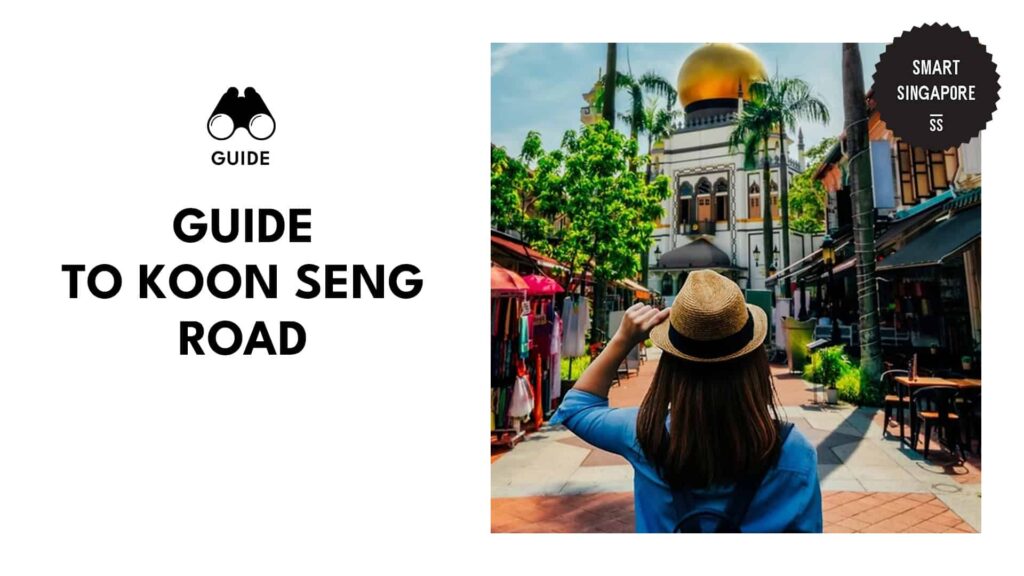Categories > Guides and Tips
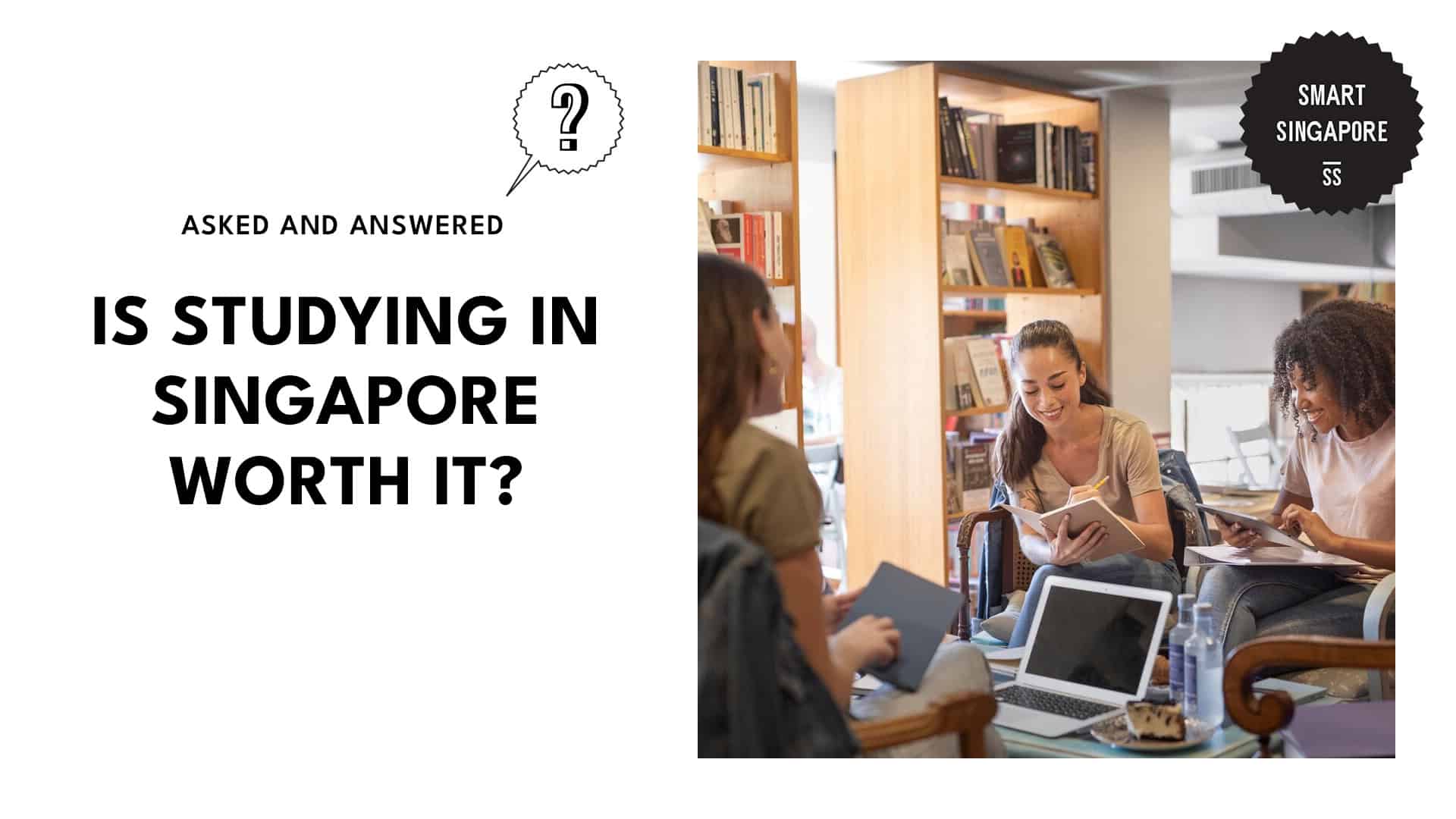
Is studying in Singapore worth it? Here’s a local’s advice
- An Overview of Studying in Singapore for International Students
- Publicly-Funded Universities
- International Universities
- Colleges and Polytechnics
- What are the best programmes to major in Singapore?
- The Costs of Studying in Singapore
- Tuition Fees
- Student Accommodations
- How to Study in Singapore as an International Student
- Acquiring a Student’s Pass
- Supporting Documents
- The Pros of Studying in Singapore
- The universities in Singapore are among the best in the world
- English is the medium of instruction
- Singapore’s efficient public transit system makes it easy to get around
- You’ll meet a diverse bunch of people
- There are plenty of study facilities and cafes in Singapore
- Leisure activities are within reach
- It’s safe to be an international student in Singapore
- Singaporean universities offer tuition grants for international students
- There are plenty of food options
- The Cons of Studying in Singapore
- It’s relatively expensive to live in Singapore
- Admission to local universities for international students is highly competitive
- Singapore is a tiny island nation
- Homesickness can hit you like a ton of bricks
- Singaporeans are highly competitive
- The weather in Singapore can be uncomfortable
- International students are required to work in Singapore if they get a tuition grant
- There are strict immigration policies
- Studying in Singapore: Is it worth it?
Singapore has world-class universities, with schools like the National University of Singapore consistently placing among the top 10 ranks each year. That says a lot about the quality of education foreigners can get in Singapore.
However, is studying in Singapore worth it? Leaving your home, friends, and family behind to study in another country is no easy feat, but it sets you up for a brighter future ahead of you!
To keep you in the know about the pros and cons of studying in Singapore, plus useful info about tuition fees, known programmes, and more, here’s a detailed guide!
An Overview of Studying in Singapore for International Students
Publicly-Funded Universities

There are a total of six publicly-funded universities in Singapore that offer a diverse range of programmes for international students. These universities are categorised into two types: research-intensive and applied degree pathways.
Research-intensive universities are institutions that focus on cutting-edge research and methodology.
Students often conduct long-term projects across a diverse range of fields and use their findings for postgraduate programmes.
These types of universities are typically known for their master’s and doctoral programmes.
Examples are the National University of Singapore, Nanyang Technological University, Singapore Management University, and the Singapore University of Technology and Design.
Applied degree universities, on the other hand, focus on industry exposure and practice-oriented learning.
Students in these universities often apply to 6 to 12-month-long internships before they graduate.
Examples of applied-degree universities are the Singapore Institute of Technology and the Singapore University of Social Sciences.
International Universities
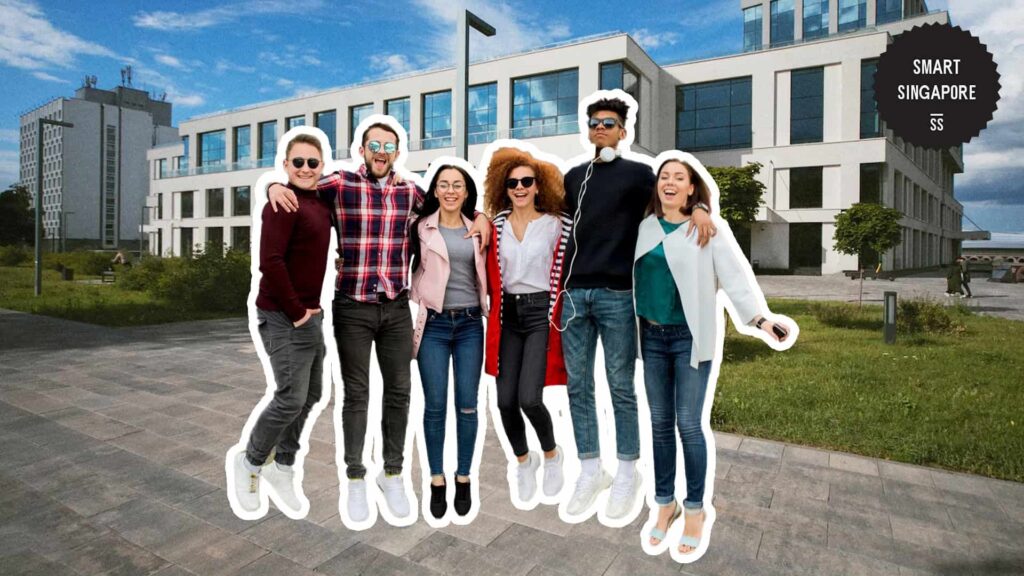
Aside from the publicly-funded universities, international students may also be admitted to international universities in Singapore. These universities are branches or satellite campuses of renowned universities around the world.
A few examples of international universities in Singapore are Johns Hopkins University, INSEAD, the Wharton Business School, Massachusetts University of Technology, Curtin, Yale University, and Duke University.
Most likely, students who attend the Singapore campuses enrolled in international exchange programmes or applied for a programme that only the Singapore campus offers.
Colleges and Polytechnics

In addition to publicly funded and international universities, there are also a number of colleges and polytechnics that students can attend for work-study diplomas, creative and fine arts programmes, and other practice-based degrees.
Schools like the LASALLE College of the Arts and the Nanyang Academy of Fine Arts and institutions such as the Institute of Technical Education are prime destinations for students who want full-time or part-time vocational and work-based learning.
Work-study diploma courses are also offered in Singapore’s six major publicly funded universities, but visa requirements for foreigners and eligibility are subject to your employer’s and the Ministry of Manpower’s terms and approval.
What are the best programmes to major in Singapore?

Currently, Singapore universities are known for their master’s and doctoral programmes in the fields of science, technology, and engineering. These programmes run between two to five years.
Undergraduate programmes focusing on business and finance are also recognised globally, with universities gaining a reputation for their offerings. On average, undergraduate studies last three to four years.
To give you an overview of the best programmes to major in Singapore’s top publicly funded universities, refer to the tables below:
*Global rank data are from the QS World University Rankings of 2024.
| Degree Levels | Type of University | Programmes They’re Known For | Global Rank | |
| National University of Singapore (NUS) | Bachelor’s, Master’s (Research), Master’s (Coursework), Postgraduate Diplomas, Doctoral | Research-intensive | Business, Natural Science, Music, Engineering, Medicine | 8 |
| Nanyang Technological University | Bachelor’s, Master’s (Research), Master’s (Coursework), Doctoral, Graduate Diploma | Research-intensive | Chemical Engineering, Psychology, Chemistry, Electronic Engineering, Artificial Intelligence | 26 |
| Singapore Management University | Bachelor’s, Master’s, Doctoral, Industry Practice Master’s, Executive | Research-intensive | Business, Management, Journalism, Social Sciences, Accountancy, Economics | 545 |
| Singapore Institute of Technology | Bachelor’s, Master’s (Research), Master’s (Coursework), Doctoral | Applied degree pathway | Civil Engineering, Marine Engineering, Data Engineering, Food and Chemical Biotechnology | No data recorded |
| Singapore University of Technology and Design | Bachelor’s, Master’s, Master of Science and Technology and Design (MTD), Doctoral, Industrial Postgraduate | Research-intensive | Architecture, Artificial Intelligence, Product Design, Digital Art, Animation, Product Engineering, Materials Science | 429 |
| Singapore University of Social Sciences | Bachelor’s, Master’s, Doctoral, Graduate Diploma | Applied degree pathway | Counselling, Early Childhood Education, Accountancy, Behavioural Science, Building and Project Management | No data recorded |
The Costs of Studying in Singapore
Tuition Fees
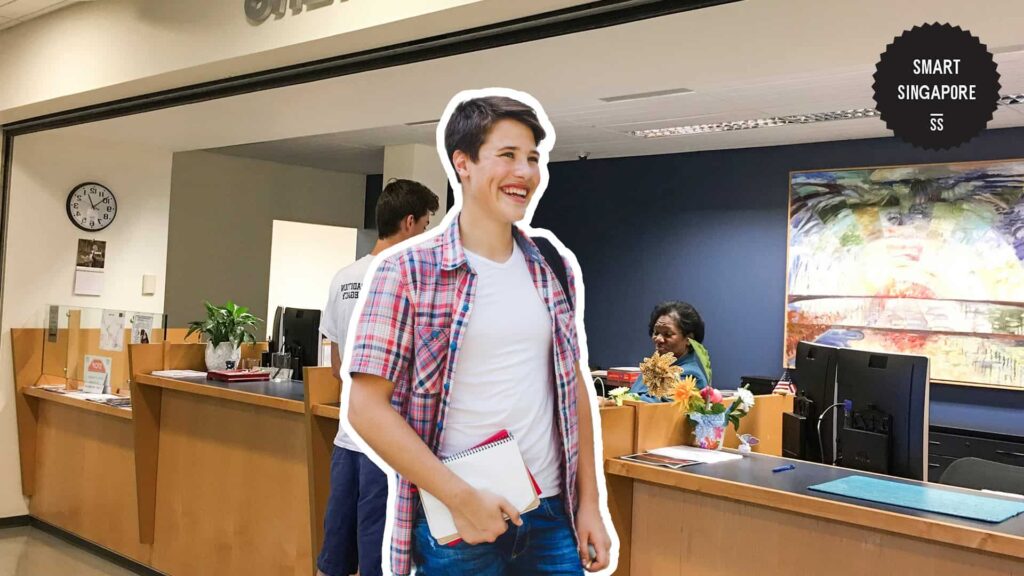
The cost of college-level education in Singapore for international students is $70,000 to $90,000 a year. Fees for international students are roughly 150% more than what a Singaporean citizen would normally pay for college.
International students, however, can apply for a tuition grant from the Ministry of Education to help pay for school fees. Singaporean citizens are automatically eligible for the grant, but permanent residents and foreigners must submit an application.
Grant values are based on nationality and merit, giving priority and the largest subsidy to Singaporean citizens. International students typically get the lowest portion.
Subsidised international students are also required to work in Singapore for a minimum of three years following graduation.
To give you a better comparison of how much the top universities charge international students, refer to the table below:
| Average Annual Tuition Fee for Undergraduate Programmes | Average Annual Tuition Fee for Postgraduate Programmes | Average Tuition Fee for Subsidised International Students (Undergraduate) | |
| National University of Singapore (NUS) | $64,360 | $59,300 | $21,043 |
| Nanyang Technological University | $36,350 | $115,000 | $17,960 |
| Singapore Management University | $47,775 | $64,650 | $24,850 |
| Singapore Institute of Technology | $111,933 | $31,285 | $73,575 |
| Singapore University of Technology and Design | $62,076 | $52,078 | $30,176 |
| Singapore University of Social Sciences | $127,098 | $31,680 | $76,000 |
These tuition fees are also subject to miscellaneous and admission fees that could amount to an extra $500 to $1,200 per student. These fees are often only charged to new students entering their first semester and are non-refundable.
Student Accommodations

Housing fees for international students in Singapore are between $800 and $2,200 per month for shared flats, and $1,500 to $4,500 per month for solo one-bedroom units.
Some universities like the National University of Singapore, Nanyang Technological University, the Singapore Management University, and the University of Technology and Design offer residence halls for their students.
Students who prefer to live on campus enjoy the benefit of staying near school amenities and classes but are subject to house rules and regulations. A portion of their housing fees also goes towards daily meals.
Those who live outside of campus typically pay higher fees and dues than those in on-campus housing but enjoy more flexibility and freedom.
How to Study in Singapore as an International Student
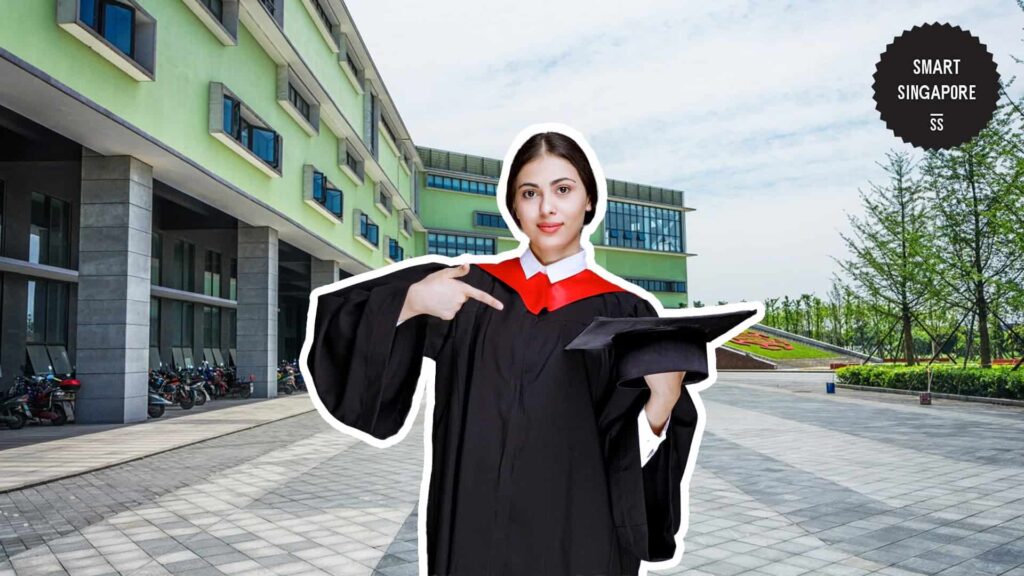
To become an international student at a Singapore university, you must get an offer from your chosen university, secure a Student’s Pass, submit your English and standardised test scores, and pay the application fee.
Acquiring a Student’s Pass
A Student’s Pass is Singapore’s equivalent to a student visa, and its validity will depend on the duration of your chosen programme.
You’ll need to submit a filled-out Form 16 and Form V36, together with your acceptance letter, test scores, passport, transcript of records or high school diploma, proof of investments or a bank loan sanction letter, and bank statements.
The visa processing fee costs $30 and an additional $60 for the visa issuance.
Supporting Documents
Universities will have their own admissions process for international students, but the list of supporting documents will vary between universities.
International students must submit the following to their chosen universities, along with their application form:
- High school diploma
- Copies of your passport
- Standardised admission test scores (SAT, ACT, GRE, GMAT, etc.)
- English language proficiency test scores (TOEFL, IELTS)
- Motivation letter
- Letters of recommendation
The Pros of Studying in Singapore
The universities in Singapore are among the best in the world

Almost half of the publicly funded universities in Singapore are listed in the QS World University Rankings each year. The National University of Singapore is considered the best in the country, with regular placements in the top 10 list every year.
The QS World University Rankings ranks universities based on key metrics like employment outcomes, sustainability, academic reputation, and citations.
Aside from NUS, the Singapore Management University, Nanyang Technological University, and the Singapore University of Technology and Design also have placements in the QS World University Rankings.
English is the medium of instruction

As an international student, one of the most important factors to consider when looking for a school abroad is whether you can understand the lessons they provide. Luckily, English is the medium of instruction in Singaporean universities!
These universities also offer classes in various languages, but these are often electives or special term courses that students can apply for separately.
Singaporeans are proficient in English as well, so getting around campus and the city won’t be as hard as you think (if your first language is English).
Plus, international students are required to submit English proficiency test scores in order to apply for admission to these universities.
Singapore’s efficient public transit system makes it easy to get around

Do you hate running late for anything? If you’re wondering how easy it is to get around Singapore and to your chosen university, then we’re happy to tell you that the city’s public transit system makes daily commutes breezy.
Of course, it won’t be perfect every day, but the city’s transit system is considered the best in the world in terms of efficiency.
Almost every neighbourhood on the island is serviced by either a bus line or a train station. Not to mention, some universities even offer shuttle services to take students in and out of campus!
You’ll meet a diverse bunch of people

Singapore is a melting pot of culture, and the island is fairly known for being a hotspot for expats.
That said, if you want an international student experience that enables you to meet new people from all over the world, then studying in Singapore may be a good idea.
There are four main ethnic neighbourhoods in Singapore: Katong-Joo Chiat, Little India, Kampong Glam, and Chinatown. These neighbourhoods are hubs for after-school hangouts and social events that you can participate in.
There are plenty of study facilities and cafes in Singapore

Do you prefer to change your scenery whenever it’s study time? You’ll find plenty of options to get some schoolwork done in Singapore.
From world-class libraries to animal-themed cafes, Singapore is packed with study spots that are designed to keep productivity and creativity flowing.
In fact, some spots are free to use! You’ll often find these in the city’s public libraries and community centres, complete with desks, power plugs, lights, and other study tools you may need.
Wi-Fi is also relatively available in these facilities, so if you need to get some online research done, doing so at a cafe or library is possible!
Leisure activities are within reach

A little fun in the middle of the school week may keep the stress at bay, and luckily, there are plenty of options for you to unwind in Singapore.
The city is a hub for shopping and entertainment, with many world-class facilities to keep your mind off work and school for a few hours.
Some attractions like Gardens by the Bay and the Singapore Botanic Gardens offer free admission, so you won’t have to worry much about going over budget.
There are also numerous museums, zoos, and theme parks like Universal Studios Singapore to keep you and your college friends occupied for a weekend. Of course, all these activities come at an expense, but it’s a plus that they’re always within reach.
It’s safe to be an international student in Singapore

In 2021, Singapore ranked as the third safest city in the world with an index of 80.7, making it a safe destination for foreign students.
The local universities have also taken measures to keep the safety of students a priority, ensuring they roam around campus with ease.
Campuses are also kept up to date with the latest infrastructure technology to ensure that students enjoy comfortable classrooms and campus grounds.
Singaporean universities offer tuition grants for international students

International students are allowed to apply for a tuition grant given by the Ministry of Manpower, significantly reducing tuition fees and dues per year.
Terms and conditions, however, may vary between universities, but if your application for a grant is accepted, you’re likely to see a 15% to 25% decrease from the regular tuition fees of international students.
That’s still a lot, considering that international student fees are generally much higher than what a Singaporean citizen would normally pay for school.
The application process, however, is competitive, but it’s still worth a shot especially if you need help financing your studies in Singapore!
There are plenty of food options
Care for a Michelin-starred dish for dinner? Don’t worry about the price tag, as you can get world-class dishes at a hawker centre or food court.
Singapore has a vibrant food culture with options ranging from spicy Indian curries to fragrant Chinese chicken rice. Many neighbourhoods in Singapore also serve specialities like laksa, noodles, and pork bone stew at very low prices.
Of course, dining out as a student isn’t always the most budget-friendly thing to do, but it’s nice to know that you have lots of options near you. Plus, this is one way you can immerse yourself in local culture as a foreigner (and it won’t cost you much)!
The Cons of Studying in Singapore
It’s relatively expensive to live in Singapore

Even though universities offer student housing, living expenses in Singapore are still relatively high. Students who opt for private housing may expect to pay an average of $1,200 to $2,500 a month just to rent a condo or apartment.
That doesn’t include food and utilities yet. On average, international students may have to set aside at least $200 a week for food and other essentials, and a little more for utilities and school-related tools and materials.
Admission to local universities for international students is highly competitive

Back in 2011, Prime Minister Lee Hsien Loong announced that international student admissions would be capped at 15% of the total student population in Singapore.
Since then, admission for international students has been highly competitive, as the ratio of foreign students to local students lessened each year.
Some universities require a long list of admission requirements from foreign applicants to supplement their application. This includes English proficiency test scores, a high GPA, excellent SAT, ACT, or other international standardised test scores, and more.
In addition to that, Singaporean universities typically have high standards for academics. If your GPA is considered exceptional by your home country’s standards, the same may not be true for your dream university in Singapore.
Singapore is a tiny island nation

We already mentioned that spots for leisure are accessible in Singapore, but due to the island’s small size, you’re likely to explore all there is to see in the country before you even graduate.
This might not be a big con for many international student prospects, but anyone who loves to travel and explore in their free time might find that Singapore can be limiting.
True, it’s easy to get around the island, but you might run out of new places to hang out with your friends after a while.
Homesickness can hit you like a ton of bricks

Getting into your dream school in Singapore is a big achievement, but attending it comes with a cost—and we’re not just talking financially.
As an international student, you’ll be apart from your friends and family back home for a while, leaving you vulnerable to homesickness after spending so much time away from them.
If you’ve always wanted to study abroad, then homesickness is something you’re conditioned to endure.
However, consider that because you’re in a different country, your chances of flying back home to see your family are limited due to extra flight costs and time spent away from your studies.
It’s a case-to-case basis, but it’s definitely something to be prepared for (even if you think you won’t miss home).
Singaporeans are highly competitive

The education culture in Singapore is heavily based on meritocracy. Because of that, local students are highly competitive, striving to be the best at anything they do in school.
That said, you’re likely to come across classmates who study for hours on end to get good scores on tests and papers. Although it’s not entirely a bad thing to have a competitive atmosphere, it may lead to excessive pressure on yourself.
Also, the job market in Singapore can be cutthroat, so students are pushed to work extra hard to get excessively good grades and high scores in hopes of landing stable jobs once they graduate.
The weather in Singapore can be uncomfortable

It’s hot and humid all year in Singapore, and if you’re a foreigner from a country that has changing seasons and cooler temperatures, then year-round heat in the city may pose a challenge for you.
Universities in Singapore, however, are air-conditioned to keep students and faculty comfortable all day. However, once you step out of the classroom, you’re likely to sweat buckets before you even reach home.
This is not necessarily a con, but it can make student life a bit uncomfortable if you’re not used to the tropical climate. You might need a complete wardrobe overhaul to stay cool and comfortable until graduation!
International students are required to work in Singapore if they get a tuition grant

If you are granted a tuition subsidy from the Ministry of Education, you are required to work in Singapore for a minimum of three years as part of a bond obligation.
There are two types of employment under the Ministry of Education’s bond obligation for subsidised international students: local and overseas.
International students who graduated under a grant must be employed full-time for three years in a Singaporean company, as a self-employed person registered in Singapore, or as an employee of an overseas branch or office of a Singaporean entity.
A Banker’s Guarantee may also be placed to pay for damages if you decide to defer from a tuition grant bond. The Ministry of Education will collect the amount stated in the Banker’s Guarantee if a subsidised international student doesn’t serve the bond.
There are strict immigration policies

If you’re planning to travel frequently in and out of Singapore, consider the fees you’re going to pay for a multiple-entry visa on top of your Student’s Pass.
It costs $30 to process your Student’s Pass, plus another $60 for issuance, then another $30 for a multiple entry visa.
Multiple entry visas are granted on a case-to-case basis and let you travel in and out of Singapore during the validity of your Student’s Pass.
Studying in Singapore: Is it worth it?

With several top-ranked universities, plenty of programme options, good infrastructure, and great employment opportunities, studying in Singapore may be worth it for foreigners.
Ultimately, the choice to leave behind your life back home and start a new chapter in Singapore depends on whether the educational style, tuition fees, programmes, and study opportunities match your goals.
